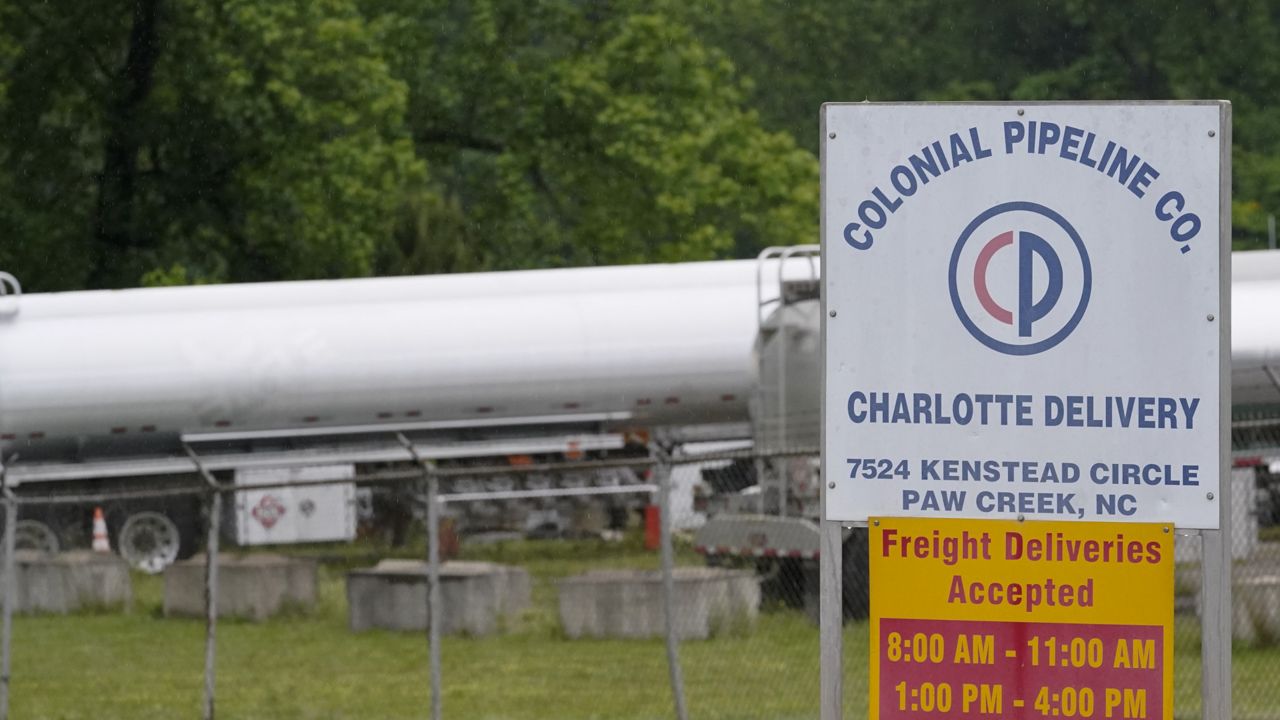Colonial Pipeline announced a restart of its operations on Wednesday, but warned that it "will take several days" for a return to normal.
Energy Secretary Jennifer Granholm wrote on social media that the Colonial Pipeline was set to resume operations around 5 p.m. on Wednesday.
The Colonial Pipeline, which delivers about 45% of the fuel consumed on the East Coast, was hit on Friday in a cyberattack by hackers who lock up computer systems and demand a ransom to release them. The attack raised concerns, once again, about the vulnerability of the nation’s critical infrastructure.
"Following this restart, it will take several days for the product delivery supply chain to return to normal," the company said in a statement. "Some markets served by Colonial Pipeline may experience, or continue to experience, intermittent service interruptions during the start-up period. Colonial will move as much gasoline, diesel, and jet fuel as is safely possible and will continue to do so until markets return to normal.”
The FBI is investigating the attack on Colonial Pipeline. They confirmed that a group called DarkSide, which has Russian links, is responsible, but haven’t pinned any blame on the Russian government so far. The Russian government has also denied any involvement in the attack.
Earlier reports said the hackers appeared to be readying to extort the company and demanded cryptocurrency valued at millions of dollars. But such action was halted after the company — working with cybersecurity firm Mandiant — traced the stolen data to a server owned by a New York hosting firm, and took steps to retrieve it.
States in the Southeast were particularly hard-hit by the shutdown, as other parts of the country have more sources to tap. For example, a substantial amount of fuel is delivered to states in the Northeast by massive tankers.
By Wednesday morning, 65% of gas stations in North Carolina were out of fuel, according to Gasbuddy.com, a technology firm that tracks real-time fuel prices across the country. Just outside Raleigh, two people were charged with assault after fighting and spitting in each other’s faces while arguing over their spots in line Tuesday at a Marathon gas station, authorities said.
Georgians were also getting squeezed, with 43% of stations there out of gas, according to Gasbuddy.com. In Virginia, 44% of stations were out, and in South Carolina, 16% had no fuel.
Speaking at an event Wednesday afternoon, President Biden hinted at the resumption of company operations — saying to “expect good news in the next 24 hours,” and emphasizing the close contact his administration has had with Colonial Pipeline in wake of the breach.
It’s unclear, however, how the United States will move to protect such critical infrastructure in the future.
The Federal Energy Regulatory Commission mandatory cybersecurity standards for the bulk electric system, but, as the AP notes, “there are no comparable standards for the nearly 3 million miles of natural gas, oil and hazardous liquid pipelines that traverse the United States.”
“Simply encouraging pipelines to voluntarily adopt best practices is an inadequate response to the ever-increasing number and sophistication of malevolent cyber actors," said Richard Glick, chairman of the Federal Energy Regulatory Commission, and Democratic Commissioner Allison Clements, in a joint statement. They called for the U.S. to establish mandatory pipeline security standards.”
And last month, a public-private task force made up of attendees including the FBI, Secret Service, Microsoft and Amazon gave the White House an 81-page “urgent action plan” to halt against ransomware attacks and help protect online infrastructure.
Per the AP, the group said “considerable progress” could be possible in the next year if the U.S. teams up with other allies, who are also under near-constant threat.
The Associated Press contributed to this report.



